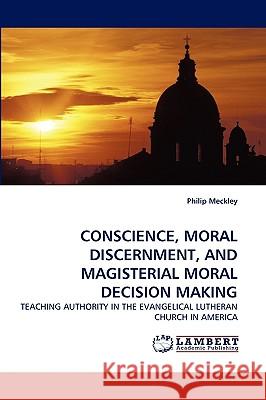Conscience, Moral Discernment, and Magisterial Moral Decision Making » książka
Conscience, Moral Discernment, and Magisterial Moral Decision Making
ISBN-13: 9783838337371 / Angielski / Miękka / 2010 / 224 str.
Conscience is the rational operation of the moral agent, appealing not to guilt and shame, but to freedom and liberation, not to fear and insecurity, but to possibility and empowerment. The rational conscience, as historically construed, opens up the life of the individual in infinite freedom to allow them to become what they are capable of becoming, through the exercise of rationality. The church qua institution has a role in shaping the individual's conscience. The teaching authority of the church is more than simply a form of doctrinal repristination for dogmatic or confessional purposes; it involves communal reflection regarding both theological and anthropological claims, considered over time.
Conscience is the rational operation of the moral agent, appealing not to guilt and shame, but to freedom and liberation, not to fear and insecurity, but to possibility and empowerment. The rational conscience, as historically construed, opens up the life of the individual in infinite freedom to allow them to become what they are capable of becoming, through the exercise of rationality. The church qua institution has a role in shaping the individuals conscience. The teaching authority of the church is more than simply a form of doctrinal repristination for dogmatic or confessional purposes; it involves communal reflection regarding both theological and anthropological claims, considered over time.











